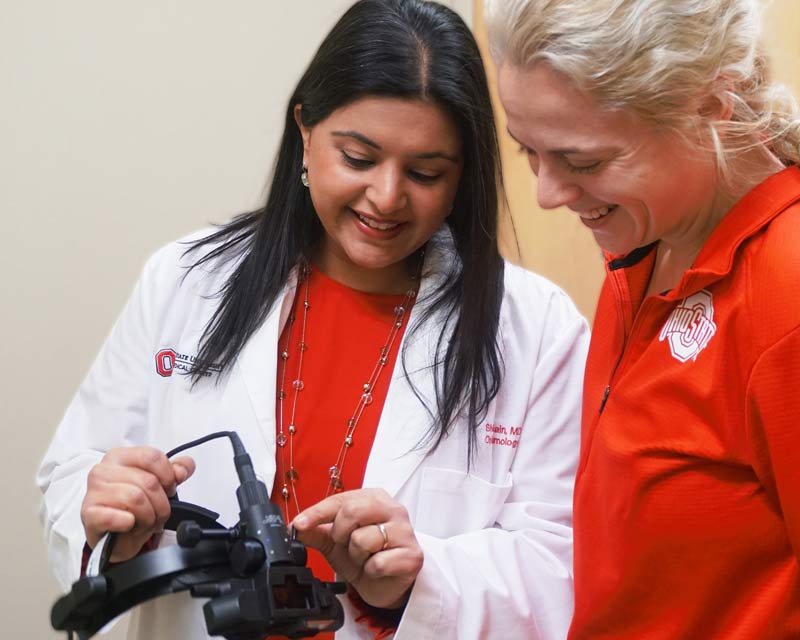 A qualified, committed ophthalmic assistant is a vital team member for any ophthalmology practice. Today’s ophthalmic assistants are handling a wide range of job duties requiring skill and experience — from maintaining electronic health records, to performing tests and assisting with complex procedures. A shortage of qualified ophthalmic staff has been exacerbated by current events, as highlighted in the December 2021 issue of the American Academy of Ophthalmology’s EyeNet magazine.
A qualified, committed ophthalmic assistant is a vital team member for any ophthalmology practice. Today’s ophthalmic assistants are handling a wide range of job duties requiring skill and experience — from maintaining electronic health records, to performing tests and assisting with complex procedures. A shortage of qualified ophthalmic staff has been exacerbated by current events, as highlighted in the December 2021 issue of the American Academy of Ophthalmology’s EyeNet magazine.
The Department of Ophthalmology and Visual Sciences at The Ohio State University Wexner Medical Center has responded — with a new, intensive, tuition-free (for students) training program that quickly brings students up to speed so they can begin working toward full certification as an ophthalmic assistant. The 12-week program’s first two students are now working full-time as ophthalmic assistants at the Ohio State Wexner Medical Center, with plans to sit for the certification examination offered by the International Joint Commission on Allied Health Personnel in Ophthalmology.
“It is the perfect time for a program like this because of the staffing shortages nationwide,” says Shelly Jain, MD, the program’s lead physician. “A great benefit of our training program is that employers are not dependent on only on-the-job training, where it can take months to get technicians experienced and confident. This focused and intensive course provides standardized teaching and comprehensive content, so technicians are ready to work independently with patients and other staff members much sooner.”
No experience is necessary, but the application process is competitive. Applicants need a high school diploma, and a science background is helpful.
The program requires 20 hours per week and provides both classroom instruction and hands-on learning opportunities. Students accepted into the program receive a stipend while they’re enrolled. After completion, the graduates have the opportunity to apply for positions at the Ohio State Wexner Medical Center, as well as other opportunities.
“In the future, we plan to open up the program to more students,” Jain says. “We want to help fill the need for well-trained ophthalmic assistants who fulfill competencies in the fundamental areas of this position, while we’re also providing a viable roadmap to a fulfilling and rewarding career.”
As the need for ophthalmic assistants and other health care staff becomes increasingly critical, this program could serve as a model for similar training programs.
“If we can provide a high-quality, efficient training path to work in health care, we may be able to address staff shortages and fill these positions with committed, competent and caring people,” Jain says. “There might be people working in retail or hospitality who would rather be launching a career in health care, and this program gives them that chance.”
